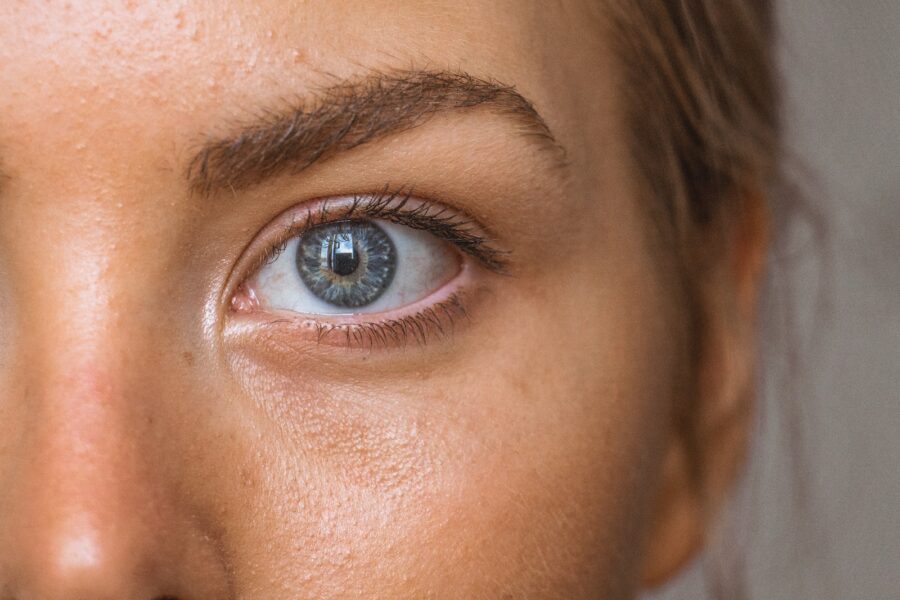Brits’ nutrient shortfalls often come under fire for their damaging effects on health. This time it’s our sense of sight under the spotlight. One in three Brits believe their sight is their most important sense and yet for many, taking care of their eye health comes way down their priority list.
That’s according to a report and real-world research poll of over 1,000 Brits[3] commissioned by MacuShield, the brains behind a range of specialist eye health supplements[4] developed in collaboration with eye experts.
Brits can see the importance of their eyes, with a third (33%) choosing their eye health[5] as their most important area of health, beating:
- Heart health (24%)
- Brain health (8%)
- Mobility (5%)
Taking a closer look at the reasons why, clinical nutritionist and report co-author Suzie Sawyer tells us that,
The survey[6] reveals that nearly three quarters (73%) place high importance on their sense of sight because of its effect on quality of life. Additionally, half of respondents (50%) value the ability to remain independent, while 47% are understandably concerned about being able to see their family.
Suzie Sawyer, Clinical nutritionist
Brits have clearly thought about the importance of being able to see but lack the nutrition knowledge to support their eyes. Public health nutritionist and report co-author Dr Emma Derbyshire highlights Brits’ dietary disaster zone when it comes to eye health, commenting:
Relatively few of us consume our 5-a-day of fruit and vegetables – which are the main source of lutein. Lutein is one of the macular carotenoids for our eyes, which form the macular pigment. The macula is the part of the eye responsible for clear, central vision, and sadly most of us will fail to achieve the suggested intake of 10mg, along with other key eye vitamins and minerals we get from vegetables and fruits.
Dr Emma Derbyshire, Public health nutritionist
While a third (33%) of respondents said they ate a healthy diet and 15% said they took an eye health supplement, the MacuShield survey[8] revealed patchy knowledge of the impact of diet and nutrition on eye health. For example, 52% thought that diet had some effect on eye health and 19% thought it had a big impact, 10% said diet had no effect, while 19% simply had no idea.
As Suzie Sawyer points out:
Many nutrients have a role in eye health, in particular vitamins and minerals such as zinc, vitamin C and vitamin B2. Macular carotenoids like lutein, meso-zeaxanthin and zeaxanthin are found in high concentrations in the eye too. Sadly, many poll respondents could not identify these key nutrients.
Only a quarter of Brits selected vitamin B2, while 15% picked out macular carotenoids and 13% said zinc could play a role in eye nutrition. What’s more, an underwhelming proportion of those polled[9] had heard of the three macular carotenoids for our eyes:
- Lutein – fewer than a fifth (18%)
- Meso-zeaxanthin – 6%
- Zeaxanthin – 7%
Additionally, a majority (57%) of those surveyed[10] didn’t know which foods contain lutein. Only 24% knew that lutein is found in green, leafy vegetables. One in six (15%) thought that lutein is found in egg yolks, which is correct if the chickens are given lutein-containing feed.
The stark reality is that while many recognise the significance of eye health, a considerable portion lacks the nutritional savvy needed to support their vision. The survey commissioned by MacuShield sheds light on the nutrient shortfalls, revealing a dietary disaster zone for eye health. Despite one in three deeming their sight the most crucial sense, the majority fall short in identifying key nutrients like lutein, zinc, and vitamin B2 that play vital roles in eye nutrition. It seems there’s a glaring gap between recognising the importance of vision and understanding the nutritional ingredients necessary to keep those eyes focused and vibrant.
Joanne is the editor for Workplace Wellbeing Professional and has a keen interest in promoting the safety and wellbeing of the global workforce. After earning a bachelor's degree in English literature and media studies, she taught English in China and Vietnam for two years. Before joining Work Well Pro, Joanne worked as a marketing coordinator for luxury property, where her responsibilities included blog writing, photography, and video creation.



